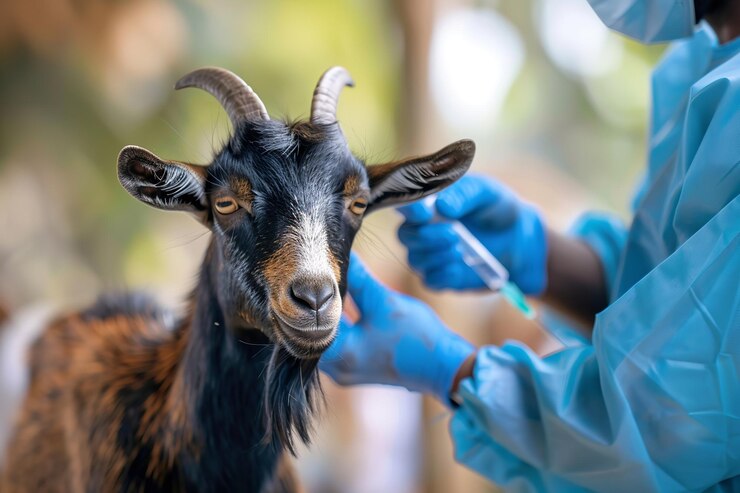
When dealing with animal health, we consider the diseases that infect animals, feeding, food safety, and environmental factors. Healthy animals are more resistant to diseases and can recover more easily when they get sick. Sick animals increase a farmer’s cost of production in terms of purchasing drugs and hiring veterinary personnel to treat the animals so it’s better for animals to stay healthy.
Treatment of the sick animal is more successful when given early before the animal is too sick and the drugs can not help it anymore. If one sick animal is not identified quickly by the farmer, it can contaminate the whole flock making all of them sick hence resulting in an outbreak which may be hard to control and in most cases results in the loss of animals. It is therefore important for the farmer to know how to identify sick animals from healthy animals and quarantine them to prevent the occurrence of an outbreak in the flock.
Below are the signs and symptoms of sick animals;
- They may have an abnormal temperature either it being too low or too high.
- They may have diarrhea, lacrimation, and sometimes coughing.
- They will appear dull and restless.
- They may not follow the rest of the flock when they go out to feed.
Animals can be kept healthy by doing the following things;
- Sheltering goats from harsh weather conditions.
- Ensuring that new animals are first put in quarantine and not allowed to mix with the old flock at least not until they are assured that they are disease free.
- Controlling both internal and external parasites.
- Vaccinating animals against common diseases.
- Ensuring that the animals have access to enough feeds and of correct quality and quantity.
- Ensuring that they have access to clean water.
Diseases that affect our animals can be categorized into three types and these are:
- Vaccinatable diseases.
- Tick home diseases.
- Bacterial diseases.
Diseases that fall under these three categories are dangerous and can cause serious setbacks in the farming sector and have caused farmers losses in terms of increased costs and loss of animals. But the good news to our farmers is that all these diseases can be controlled through vaccination, spraying using recommended acaricides, and ensuring proper feeding and hygiene respectively.
If the animal gets sick, it has to be treated and the records of treatment and sickness kept. But if some animal keeps on getting sick all the time then it should be culled out as it is weak which not only costs a farmer money but also transfers genes to the next genera
KIDS MANAGEMENT
Kids are the profits in a goat rearing business and need to be handled with Maximum care. Kids are affected by different mortality rates in different places of the country and this is due to poor management of these kids such as; unhygienic kraals, unhygienic food and water troughs, poor flock hygiene which results in coccidiosis as a major problem in these kids, poor nutrition, and predators. All these problems result in modalities which in return reduces the number of kids that will be the nannies of the future generation when the older ones are no longer productive.
The following are the measures that can be taken to minimize the number of kids that die.
- Let the goats give birth in a quiet, clean and dry place without much interference from the environment.
- Give kids a drop of iodine on the tongue to prevent deficiencies.
- Ensure that the kids are dry and bond with the nanny, and make sure they consume colostrum within an hour of being born.
- Make sure the nanny is healthy after giving birth and has enough good milk for her kid (no mastitis retained placenta)
- Ensure that the nanny has access to green fodder after giving birth to stimulate milk that is let down.
- Cull nannies with poor mothering abilities or bad udders when they have weaned their kids.
- Give kids supplemental feeds from a month old so that they are able to cope with their mother’s poor milk production which tends to be little for them as they grow.
- Separate nannies and kids from the rest of the flock especially when in the kraal to avoid trampling which may injure or kill kids.
- Provide a dry clean weatherproof shelter for newborn kids and their mothers.
- When the kids start growing at one month, deworming should be done to them every after two weeks meaning twice a month as they can not resist the worm burden which results in stunted growth.
- They should also be given oral vitamins twice a month as this will boost their appetite making them consume enough food that will in return turn into muscles.
- Dry grass should be put in the kids pen to act as bedding and should regularly be changed. The pen should as well be disinfected so as to minimize bacterial infections.
- Kids should be sprayed on a weekly basis using acaricides in right dosages since the ticks not only attack nannies but kids too.
The three types of diseases mentioned earlier under animal health can also affect kids but the former should also take note of coccidiosis, diarrhea, abscesses, bloat, infectious pneumonia, and arthritis as these have resulted in the death of kids on a large scale.
A simple piece of advice to our farmers is that; “if you want to have a successful farm that yields profits after investing in it, then make supervision a daily habit and routine because it is what you supervise that gets done but not what you expect”
Sam Muwonge – Vetinnary Doctor at YPA
